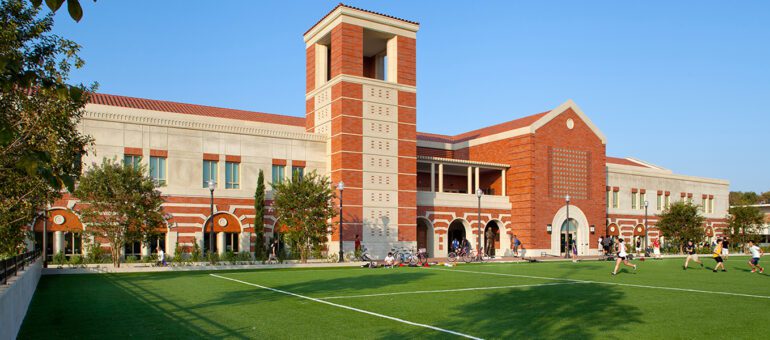TL;DR:
- USC researchers introduce Shared Knowledge Lifelong Learning (SKILL) to revolutionize machine learning.
- SKILL employs parallel learning algorithms with decentralized AI agents.
- AI agents master specific tasks and share knowledge, reducing learning time.
- SKILL holds potential in various domains, including healthcare and tourism.
- AI agents collaborate to address complex challenges beyond recognition-based tasks.
- SKILL resembles crowdsourcing, yielding comprehensive solutions through collective efforts.
- Embracing shared knowledge, AI agents work as a connected, efficient global network.
- The future holds interconnected AI agents, transforming interactions with technology.
Main AI News:
In a groundbreaking endeavor that promises to reshape the landscape of machine learning, a team of researchers from the University of Southern California (USC) has unveiled Shared Knowledge Lifelong Learning (SKILL). Their innovative approach, outlined in a recent publication in Transactions on Machine Learning Research, opens up new possibilities for AI agents to continuously learn and retain knowledge from multiple tasks, marking a transformative milestone in the realm of artificial intelligence.
Unlike traditional machine learning, which often involves a slow and sequential process of task acquisition, SKILL introduces a revolutionary concept of parallel learning algorithms. This cutting-edge approach assigns specific tasks to a decentralized population of 102 AI agents, allowing each agent to focus on mastering its designated domain. Once these agents achieve expertise, they collaborate by sharing their knowledge across the network, leading to efficient communication and knowledge consolidation. As a result, the overall learning time is dramatically reduced, paving the way for faster and more dynamic AI capabilities.
The potential applications of SKILL are nothing short of astounding. With the ability to scale across numerous natural tasks, researchers foresee a future where SKILL could encompass thousands or even millions of tasks, transforming various aspects of daily life. One prominent example lies in the field of medicine, where different AI systems could specialize in learning about distinct illnesses, treatments, patient care techniques, and cutting-edge research. By pooling their knowledge, these AI agents could serve as comprehensive medical assistants, empowering healthcare professionals with the latest and most accurate information across all areas of medicine. The integration of SKILL in healthcare could elevate patient care to unparalleled heights, delivering unparalleled support and expertise to medical practitioners.
Beyond the medical domain, SKILL’s capabilities extend far and wide. Imagine a world where every smartphone user becomes a local tour guide while exploring a new city. Equipped with cameras and enriched information about landmarks, stores, products, and local cuisine, each user contributes to a vast knowledge repository. Once this data is shared across the SKILL network, every user gains access to an advanced digital tour guide at their fingertips, enhancing their travel experiences like never before.
SKILL is not limited to recognition-based tasks; it also enables AI agents to collaborate on complex real-world challenges that require insights from diverse domains. This collaborative approach to problem-solving is akin to crowdsourcing, where collective efforts yield solutions that surpass the capabilities of any individual. Much like how online reviews amalgamate the knowledge of many to provide valuable insights, SKILL empowers AI agents to share information and arrive at more comprehensive and accurate conclusions.
The implications of this innovative breakthrough in AI are profound. By embracing shared knowledge, AI agents break free from the constraints of limited expertise silos and foster a future where they work as a collaborative network. This interconnected AI community promises a world of intelligent, efficient, and connected systems, where the collective wisdom of machines drives progress and innovation.
Conclusion:
The introduction of Shared Knowledge Lifelong Learning (SKILL) marks a significant leap in the field of artificial intelligence. This revolutionary approach, developed by USC researchers, enables AI agents to continuously learn and share knowledge from multiple tasks, significantly reducing learning time and paving the way for faster and more dynamic AI capabilities. SKILL’s potential applications in healthcare, tourism, and problem-solving present promising opportunities for the market. Embracing shared knowledge, AI agents transcend limitations, creating an interconnected network that drives progress and innovation across various industries. As this transformative era unfolds, businesses and industries need to adapt to leverage the power of SKILL and embrace collaborative AI systems to stay competitive in the ever-evolving market.

